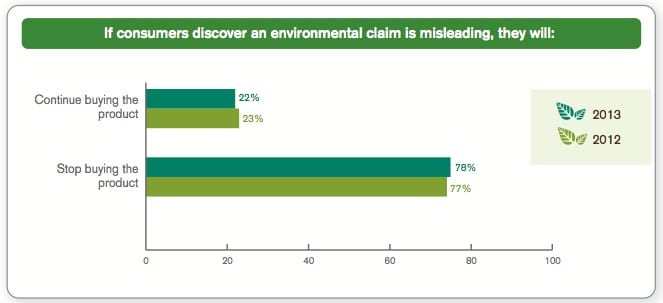Consumers are getting a green thumb. According to the Cone Communications Green Gap Trend Tracker, which was released on April 2, a record-high 71% of Americans consider the environment when they shop, up from 66% in 2008. In addition, nearly half (45%) of consumers actively seek out environmental information about the products they buy.
However, consumer understanding of environmental messages presents an obstacle in buying environmentally friendly products. Although more than 60% of respondents said they understand the environmental terms companies use in their advertising, the majority continue to erroneously believe common expressions such as “green” or “environmentally friendly” mean a product has a positive (40%) or neutral (22%) impact on the environment.
Almost three-quarters (71%) of respondents said they wish companies would do a better job helping them understand environmental terms. Although 48% of respondents said they feel overwhelmed by the volume of messages in the marketplace, 69% of respondents said it’s OK if a company is not environmentally perfect as long as it is honest; 78% of respondents said they would boycott a product if they discovered an environmental claim to be misleading and would punish companies if they feel misled (see chart below). As green marketing goes mainstream, here are three essential tips from top CSR experts on tailoring your CSR messages:
• Avoid generalities: “One-word generalities cut the legs out of the realities of a product. ‘Green,’ ‘renewable,’ ‘natural’ can all cause problems.” —Dave Stangis, VP, public affairs and corporate responsibility at Campbell Soup.
• Carefully research your claims: “You’ll have to know more about your product or program than bloggers know.” —Robbin Goodman, executive VP and partner, technology at Makovsky + Company.
• Don’t rely solely on PR to avoid greenwashing accusations. “It’s about the business practices of a company. So be consistently transparent about everything you do.” —Trent Ross, managing director, Ipsos Global Reputation Centre.
Follow Scott Van Camp: @svancamp01

